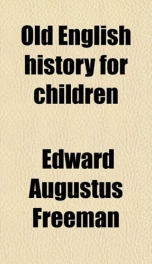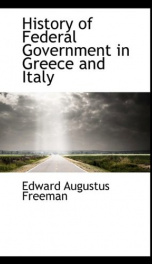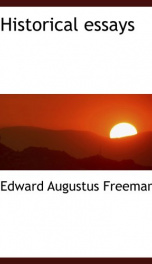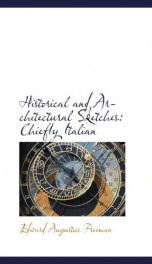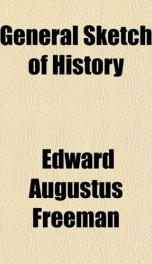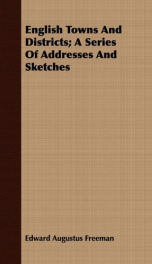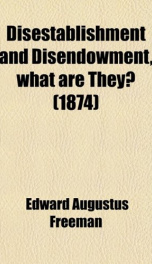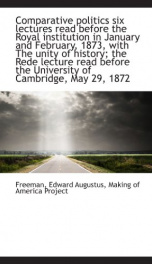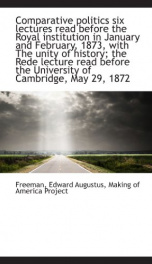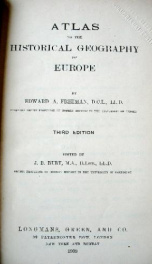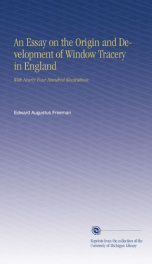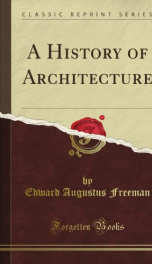an introduction to american institutional history written for this series
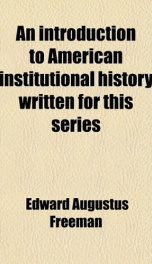
Purchase of this book includes free trial access to www.million-books.com where you can read more than a million books for free. This is an OCR edition with typos. Excerpt from book: MR. FREEMAN'S VISIT TO BALTIMORE. By Te Editor. Mr. Freeman came to America in the fall of 1881, on the joint invitation of the Lowell Institute in Boston and of the Peabody Institute in Baltimore. The united influence of these two local institutions, representing the intellectual union of Northern and Southern cities, was seconded by two other influences of a local character: first, by Mr. Freeman's natural desire to visit his own son, who married in Baltimore and who now lives upon a plantation in Virginia ; secondly, by an ardent longing to see with his own eyes a New England Town Meeting, which, in the genealogy of local institutions, is a long-lost child of Old England and a grandchild of the Fatherland. The historian of " The English People in their Three Homes " regards the local institutions of the United States, North and South, as the historic offspring of England and Germany, as truly as his own name, once applied to all freemen of the English Colonies in America, is directly perpetuated by children and grandchildren in the Old Dominion, where he indulged what he pleasantly calls " oldfatherly emotions towards the last-born bairn's bairn," and where, true to historical impulses, he began a " Virginia Domesday " in the old forms : " Freeman tenet; Belt tenuit Ante Ouerram. Valebnt . . . dollarios; modo . . . Wastefuit." With the grim humor of William the Conqueror, who, when he fell to the earth upon landing at Pevensey, grasped the soil and thus took seizin of England, Mr. Freeman describes his son's territorial conquest upon the shore of the Rapidan, " Potuit ire quo voluit cum ista terra, for the soil of the Old Dominion sticketh to the boots and is carried about hither and thither! " This extract from a letter dated Somerleaze, Rapid Ann Depot, Cul- peper Co...
Info about the book
Author:
Series:
Unknown
ISBN:
0415881579
Rating:
3/5 (2)Your rating:
0/5
Languge:
English
Users who have this book
Users who want this book
What readers are saying
What do you think? Write your own comment on this book!
write a commentif you like an introduction to american institutional history written for this series try:
Other books by this author
Do you want to read a book that interests you? It’s EASY!
Create an account and send a request for reading to other users on the Webpage of the book!
